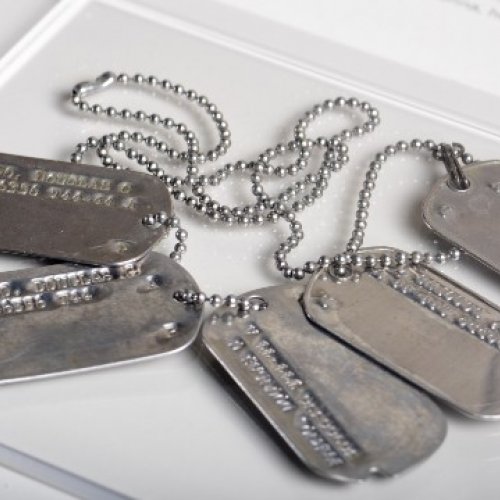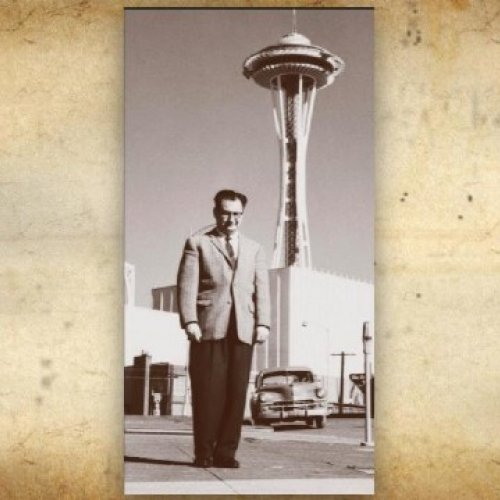
Image: United States Army Dog Tags, 1945. The US Army required all officers to wear dog tags for identification in case of casualty. Engraved on these dog tags are Sergeant Douglas Fargo’s name and serial number, 36966356. On May 4, 1945, Fargo helped liberate Gunskirchen Lager, a sub-camp at Mauthausen concentration camp in Germany, with the 71st division of the 3rd Army, serving under General George Patton. Donated to the Holocaust Center for Humanity by Douglas Fargo.
Common Core State Standards as addressed by this Overview Lesson
Liberation & Post-War
Allied forces witnessed horrific crimes as they moved across Europe from mid-1944 and into 1945. Jewish survivors emerged from hiding, camps, or secret identities. The survivors of the Holocaust, with determination and resilience, spread throughout the globe to rebuild their lives.
By mid-1944, Nazi Germany’s stronghold over Europe began to erode. As Allied troops (led by the United States, Britain, and the Soviet Union) advanced, the Nazis made attempts to cover up their crimes.
When the Germans surrendered in May 1945, the war did not end for the survivors. Many required long hospital stays. Displaced persons (DP) camps were established by the Allies to give refuge to the survivors who stayed for weeks, and sometimes years. They searched for family members and friends, or attempted to return home — often finding nothing waiting for them. Their houses and possessions had been stolen from them, and most of their neighbors had turned a blind eye or, worse, played a role in their persecution. The survivors who found their way to the Pacific Northwest came with hopes of freedom and a chance to start a new life.
Video Testimony Clips
The survivors and eye-witnesses featured below live or have lived in Washington State. These individuals, with their history and stories, have shaped our community, contributing to its richness and diversity. They challenge us to understand history through personal narrative - to see complex human beings behind the facts.
Questions
1. What challenges immediately faced survivors of the Holocaust?
2. What challenges did survivors likely face in the DP camps?
3. What obligations, if any, do (or should) countries have to the survivors of genocide, war and mass atrocity?
4. What challenges did the Allied forces face when they encountered the camps?
5. After viewing the associated video stories of the above survivors and liberator (David Willsey), choose one story that most impacts you and explain how the story contributes to your understanding of the post-war challenges faced by survivors or liberators.
6. For many survivors and refugees of war or genocide, “survival” is the hardest part of surviving. Consider the following quote from author Goran Rosenberg, recounting the experiences of his father and other Holocaust survivors:
“You who have survived Auschwitz are all damaged, whether it shows or not, and whether you care to admit it or not. Some of you deal with the damage better than others and are able to build a new world on the ruins of the old one and see all kinds of horizons opening up, and after a time no one can see or even suspect where you come from and what you’re carrying with you – but no one is safe from the shadows.” (Rosenberg, Goran, A Brief Stop on the Road from Auschwitz, p 307 (Other Press, 2012).
What do you think the author means in this quote?


